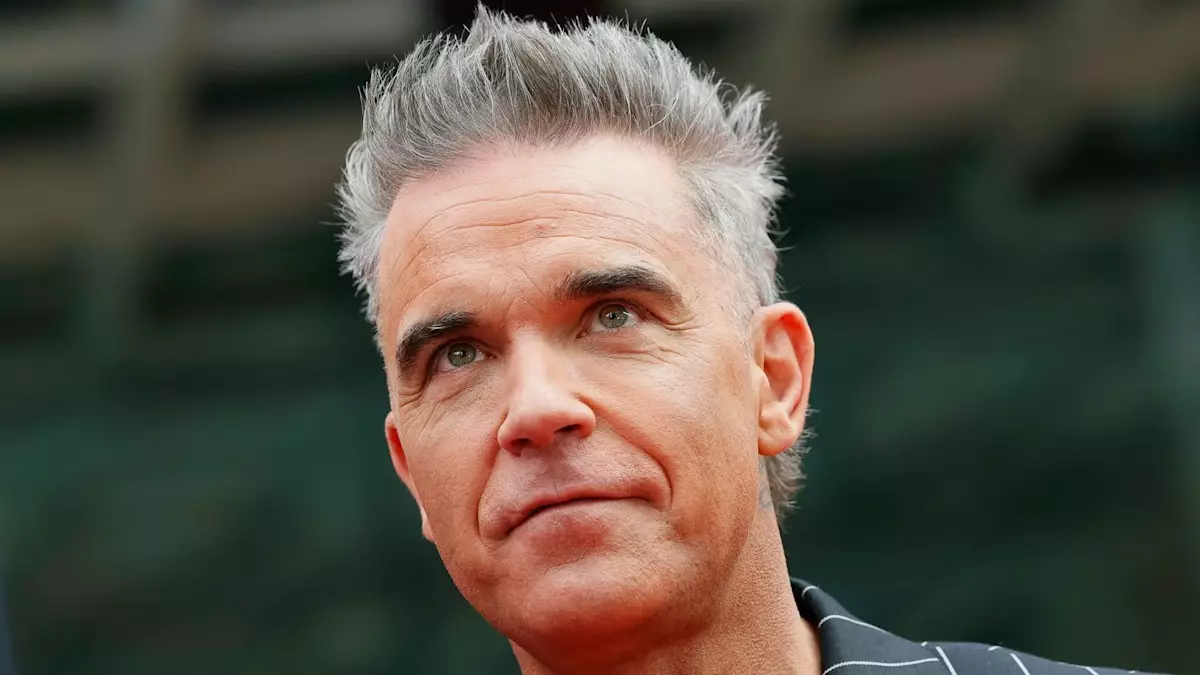The phenomenon of “boy band dysphoria” has shed light on the often unrecognized emotional and psychological challenges faced by members of popular music groups. Robbie Williams, a prominent figure from the iconic band Take That, recently articulated his tumultuous experiences within the music industry. In a heartfelt Instagram post, he dove deep into these issues, particularly addressing the emotional toll that fame and the boy band dynamic can exert on its members. His reflections emerged in the context of a new documentary series, “Boybands Forever,” which scrutinizes not just the glitz and glamour but also the darkness that sometimes lurks behind the scenes in the lives of pop stars.
Williams, now 50, bravely revisited his own battles with drug addiction, making it clear that his struggles were his own, influenced more by the tumultuous environment of fame than by anyone else’s actions or words. In rebutting claims made by his former manager, he asserted that the negative aspects of his life were not just collateral damage inflicted by others but rather manifestations of his own responses to that environment. This understanding is crucial; it emphasizes the necessity for individuals to take ownership of their choices, even when those choices arise from extremely challenging circumstances.
This broader discussion about addiction is essential—not merely for understanding Williams’ story but for recognizing a pervasive issue that affects many within the entertainment industry. The glamorization of celebrity life often conceals the darker realities of mental health struggles. Williams highlighted a “pattern” among boy bands: while some members manage to cope and heal through self-reflection and support, others remain ensnared in their past traumas. This disparity underscores the need for open dialogues about mental health within the music community.
Williams’ candid acknowledgments extend beyond his own experiences; he also emphasized the struggles of his former bandmates. Each member of Take That has faced unique challenges—be it alcoholism, eating disorders, or other personal demons. By bringing light to these hardships, Williams helps cultivate a more comprehensive narrative surrounding boy bands. He poignantly noted that Jason Orange’s pain is so deep that he cannot even engage with the band. This awareness fosters a sense of compassion in fans, helping them to see their idols not just as “stars” but as flawed human beings navigating complex lives.
His critical reflection on the insidious effect that addiction can have on relationships also merits attention. In his post, Williams acknowledged past decisions that strained his personal life, including a separation from his wife, Ayda Field. The complexities of addiction extend beyond the individual, weaving through the fabric of loved ones’ experiences, highlighting the ripple effect that such struggles can create. Fortunately, Williams has displayed resilience, ultimately redefining his relationship with his wife and nurturing a family together, which he proudly shares with his four children.
Confronting Gaslighting in Narratives
A significant aspect of Williams’ message critiques the phenomenon of gaslighting within narratives concerning addiction and mental health. By emphasizing the need for recognition and validation of lived experiences, he sheds light on an enduring issue—how perceptions and misunderstandings about addiction can lead to further pain for those affected. His statement regarding gaslighting serves as a powerful reminder: it is vital for anyone, especially those in the industry, to be cautious when discussing the realities of someone else’s life. Williams encourages a cultural shift toward greater empathy and understanding, inviting fans and the media alike to become advocates for mental health rather than perpetuators of stigma.
Ultimately, Robbie Williams’ reflections on boy band dysphoria and addiction serve as a catalyst for broader discussions about the mental health challenges faced by those in the entertainment industry. His honesty offers hope that while wounds may remain, healing is possible through self-examination, compassion, and the support of loved ones. As society continues to confront mental health issues, it becomes increasingly essential to create environments where individuals feel safe to share their stories—unfiltered and truthful. The music industry, with its inherent challenges, can serve as a powerful platform for change, fostering a culture that prioritizes emotional well-being alongside commercial success.

